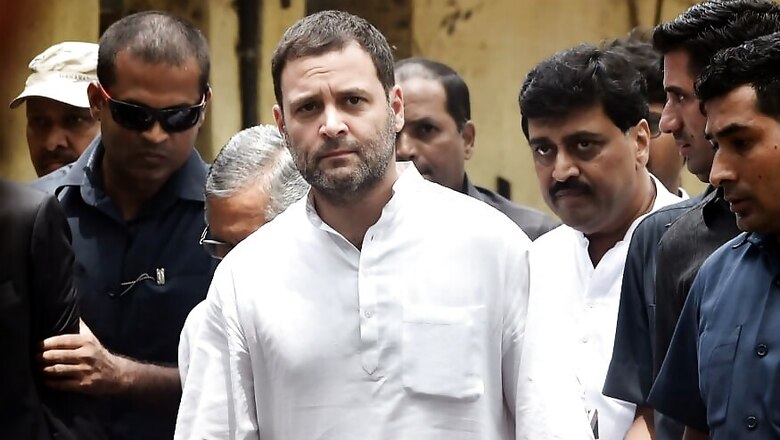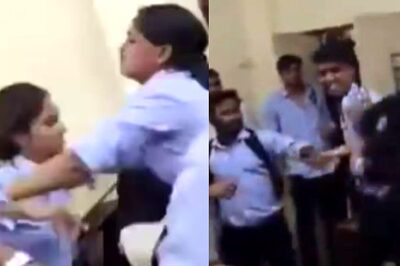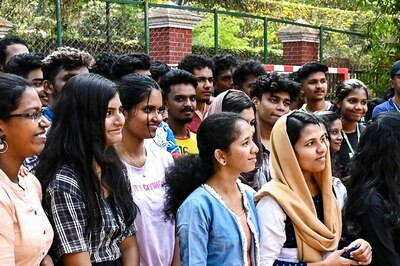
views
Congress president Rahul Gandhi appears to have suppressed his inner Ronaldo to emerge as a team player in the 2019 general elections. But can he summon his inner Messi in service of a grand coalition of opposition parties? Alas, his Mahagathbandhan teammates do not appear to see him as a striker.
The Grand Old Party's coalition-centric strategy is based on hopes of a 2004 redux, but it is not yet clear how far it will go to defeat the BJP. Is it in kamikaze mode, revving up for an aar ya paar (do or die) battle, or is it playing a deeper game?
So far, the Congress has bent over backwards to accommodate potential allies, borrowing from Mother Teresa's “give until it hurts” maxim. Certain sections of the party feel this is suicidal, while others see it as the only hope of revival.
The decision to cede its sole Rajya Sabha seat in Kerala to its former ally, the Kerala Congress (Mani), was met with outrage from state MLAs, who described it as “a suicidal move”.
In the recent bypolls, the Congress gave away its Lok Sabha seat in Maharashtra to the NCP and both seats in Jharkhand to the JMM.
The wisdom of surrendering the chief ministership of Karnataka to the JD(S), along with key portfolios, is now being questioned internally. In the growing bitterness between the Congress and JD(S) workers, it ironically falls to Siddaramaiah to keep the peace. As leader of the opposition, he could have lived to fight another day. Now, he is at the mercy of HD Deve Gowda, his mentor-turned-enemy-turned-ally. The BJP couldn't be happier: arch-rival Siddaramaiah is diminished and keeping the marriage of convenience afloat is a daily battle.
Giving up its own, already-shrunken ground for the benefit of allies, who have not committed anything to the Congress in turn, is a big gamble because it is bound to create dissent at the state level. It's one thing for the central leadership to display humility; to expect Congress workers and MLAs to pay the price of that humility is another. For the rank and file, revival of the party is the priority, not revenge on the BJP.
In Uttar Pradesh, for example, the SP-BSP are not inclined to accommodate Congress aspirations and acceding to their terms may result in a revolt within the ranks. Conversely, the Congress is disinclined to accommodate AAP in Delhi, Punjab and Haryana.
The regional satraps have made it clear that their sympathies lie with embattled Chief Minister Arvind Kejriwal rather than the Congress. Likewise, in Andhra and Telangana, they are with Chandrababu Naidu and KCR. In Kerala, the Congress has no option but to oppose the Left, while in West Bengal, it must risk annoying either the Left or Mamata Banerjee.
So a pan-India alliance does not seem likely and the complex web of conflicting interests requires the negotiating skills of a Machiavelli.
Even so, a coalition-powered 'Congress Mission 100+' is not beyond the realm of possibility, although it rides on a number of assumptions.
First, its strike rate must be more Manmohan than Rahul. The Grand Old Party is still relevant in a little over half the country, accounting for around 275-280 seats (and a non-player in about 260 seats). Realistically, it can credibly contest enough seats to ensure a tally of a 100-plus, provided it can equal its 2009 strike rate of 46 percent, the best since 1991. By comparison, Rahul's strike rate in 2014 was less than 10 percent. Sonia's was around 33 percent in 2004 and 25 percent in 1999.
The second assumption is that the Congress will avoid unforced errors, like the hate-love-hate-love response to former president Pranab Mukherjee's speech at an RSS function in Nagpur and Rahul Gandhi's wannabe-PM remark in Bengaluru.
If the Congress was trying to find a means of cementing RSS support for the BJP, at a time when the mother organisation is miffed with the ruling party on several counts, it cannot have done better than to attack Pranab babu for visiting Nagpur. By the time Rahul stepped in, it was too late. Message to the RSS — proponents of the 'Hindu terror' theory in the Congress are still in charge.
A section of the party feels that appointing Jairam Ramesh as 2019 campaign coordinator is another such error. Once Rahul Gandhi's advisor-in-chief, he was briefly sidelined but is back with a bang. Seen as a successful minister and superb draftsman but an incompetent politician, he was severely criticised for his role in the Congress debacle in Andhra Pradesh/Telangana in 2014.
The third assumption is that the Congress itself will hang together and state leaders will not seek to undermine each other. This is a tall order, particularly in Rajasthan and Madhya Pradesh, which are the Congress' best bet.
So, while the Congress may be in with a chance, this is Indian politics and the state of play changes from minute to minute. The no longer grand but definitely old party will have to be nimble-footed to keep up.
(The author is a senior journalist. Views are personal)




















Comments
0 comment